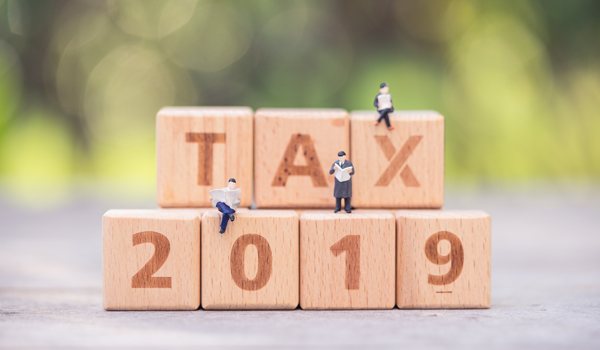| Topic | Crux |
 Relocation costs benefit: Relocation costs benefit:When will the expenditure be allowed as deductible relocation costs paid by the employer? |
|
 Expat tax amendment
|
In terms of the current law: Section 10(1)(o)(ii) of the Income Tax Act 58 of 1962 currently provides quite a significant income tax exemption for any South African resident who is working abroad on a temporary basis, which exemption comes down to a 100% income tax exemption of any remuneration received from any employer(s) for work done outside South Africa if:
In terms of the amendment (which will be effective from 1 March 2020): Section 10(1)(o)(ii) of the Income Tax Act 58 of 1962 will no longer be a 100% exemption. From 1 March 2020 only the first R1,000,000 (one million Rand) of a South African’s foreign salary/income will be exempt from income tax and any amount above the R1,000,000 will be subject to South African income tax. *This proviso will still apply. |
 Financial Emigration
|
Financial emigration is one of the options which falls within the ambit of tax planning and could be an option for you and your family.
However, before the decision can be made, we firstly need to analyse your financial portfolio in order to determine whether financial emigration will be cost effective and whether it is the best option for your portfolio (taking all relevant factors and circumstances into consideration). For more information contact Chantél van der Merwe at c.vandermerwe@fhbc.co.za or give us a call. |
 Is your business about to sponsor sporting equipment to a local sportsman/woman? Here’s why it may qualify as a business expense.
|
The basic requirements in order to qualify as a sponsor, whose sponsorship constitutes advertising/marketing expenditure are:
Having a look at the third requirement as stated above, it seems as if one cannot deduct an expenditure unless the expenditure is linked with the sponsors own trade and income-producing activities. On the one hand it may be interpreted that this means if you sponsor something that is not linked with your business’s own trade – you cannot deduct such amount as an expenditure. Regarding the nature of the example where a bicycle is sponsored by a financial services company – it might, on the face of it, disqualify the sponsorship cost as advertising expenditure. “. . . the purpose of the expenditure is an important factor; if it is incurred for the purpose of acquiring a capital asset for the business it is capital expenditure even if it is paid in instalments; if, on the other hand it is in truth no more than part of the cost incidental to the performance of the income producing operations, as distinguished from the equipment of the income producing machine, then it is revenue even if it is paid in a lump sum.” |
 SA’s all new carbon tax:You must start keeping record of your carbon footprint for SARS from 1 June 2019.
|
The implementation of carbon tax isn’t just a brand-new concept for our regulatory authorities, but it also falls within its own highly specialised field of tax law which is yet to be tested by taxpayers, tax practitioners, SARS and other interested parties/stakeholders. Therefore, in order to ensure that your company will be tax compliant in terms of the Carbon Tax Act 15 of 2019 and the Customs and Excise Amendment Act 13 of 2019, it is of utmost importance to seek professional financial and legal advice.
To emphasise the importance of the record keeping of your company’s carbon footprint – please note that the first tax reporting period for carbon tax already started as from 1 June 2019 and will end on 31 December 2019. The tax returns for the latter period must be submitted to SARS via eFiling in July 2020. Additionally, you or your company will need to be proactive regarding your 2020 budget by including an amount of the estimated carbon tax your company will be liable for. |
 Bursaries and scholarships in the workplace: invest in your team
|
The application in the workplace
Where the benefit is granted to an employee the following requirements must be met in order to qualify for the tax-free benefit: The bursary or scholarship will be exempt from tax where:
Bursaries and study loans granted as fringe benefits |
 What you need to know about Public Benefit Organisations and section 18A receipts
|
What is a public benefit organisation (PBO)? Section 30(1) ITA sets out the different requirements which must be complied with by organisations in order to qualify as public benefit organisations. These requirements can be summarised as follows:
Why is it crucial to apply for the income tax exemption? The fact that your organisation complies with the requirements set out in section 30 of the ITA, does not automatically grant your organisation a tax exemption. In order to qualify for the said exemption, your organisation must apply for its PBO status. This application must be submitted to SARS’s tax exemption unit. Together with your application, you must also submit your organisation’s constitution. Once your organisation’s application has been approved, your organisation will no longer be liable for income tax (and donations tax). Keep in mind that your organisation must still submit annual tax returns (IT12EI), as this obligation does not fall away. |
For the full versions of the above news articles with references, please visit our website:
https://www.fhbc.co.za/latest-news/
Or get in touch:
T +27 (0)21 864 5180 / c.vandermerwe@fhbc.co.za
Our next tax topic – January 2020
“To be or not to be” Shakespeare
Does your business qualify as a “Small Business” according to SARS?

